30 Killer Cannes Debuts
Films we first met on the Croisette...
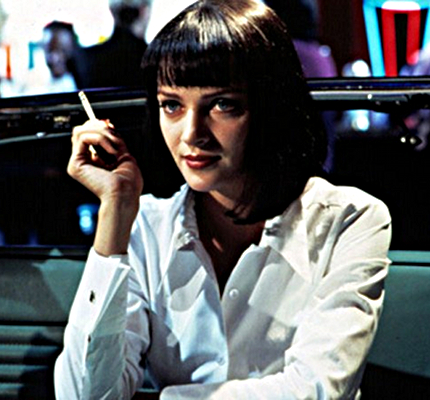
Pulp Fiction (1994)
Critical Response: Nothing short of a France-frothing phenomenon almost from the second it landed. Even the Weinstein's were palpably pumped about their new baby, throwing the entire cast at the Croisette for the midnight screening of Tarantino's magnum opus.
The Palme d'Or must've been etched by Act II...
Post-Cannes Reception: Do we need to elaborate here? Phrases like 'epoch-defining', 'watershed' and 'cult phenomenon' continue to waft and curl around the name Pulp Fiction like the smoke from Mia Wallace's cigs. And so they bloody well should.
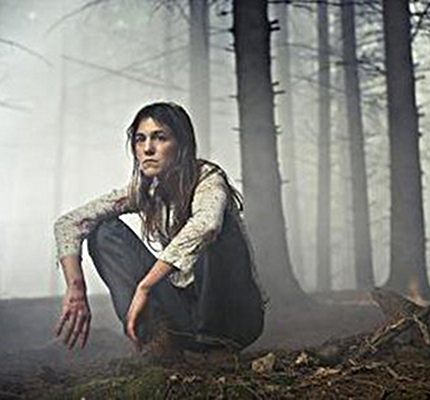
Antichrist (2009)
Critical Response: Well, let's say 'mixed'. By which we mean numerous audience members fainted, and a frothing Daily Mail (surprise!) journo demanded that Lars Von Trier justify himself in a post-screening conference.
And yet, amid this hand-wringing ruckus, Antichrist was Palme d'Or nominated, and scooped a Best Actress award for Charlotte Gainsbourg.
Post-Cannes Reception: Debate continues, mostly over whether or not it's hideously misogynistic. Funnily enough, Von Trier haters tend to insist it is; fans claim it's arguably his best work...
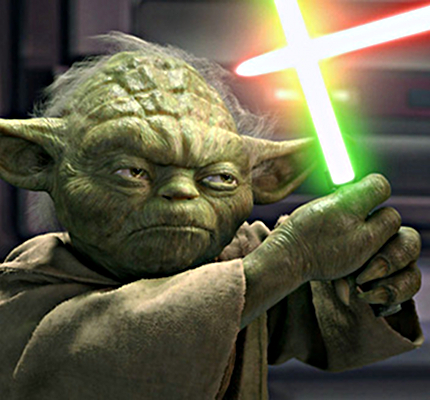
Star Wars Episode III: Revenge Of The Sith (2005)
Critical Response: Ok, so critics weren't stunned into rapturous silence - we're putting it in this list because it underlines Cannes' position as a true titan of the movie world. A Star Wars film premiering at a FOREIGN film festival? The force is strong in this one.
Post-Cannes Reception: Generally accepted as the best prequel, and some even reckon it edges Return Of The Jedi . Alas, it'll always be tarred with the Jar Jar Binks-shaped brush that made us burn our Han Solo duvets in a fit of sobbing and swears.
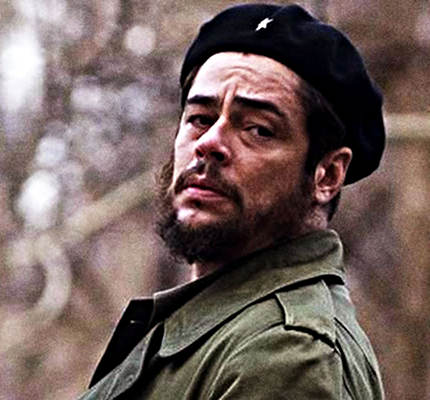
Che (2008)
Critical Response: Proof that Cannes is not only suitable for huge profile films, but also just huge films. Numb-arsed critics sat through four-and-a-half hours of Steven Soderbergh's guerrilla biopic before declaring it, on average, 'fairly decent'. We assume nobody had the energy left for cheering.
Post-Cannes Reception: Wisely, Soderbergh trimmed the two commercial halves, and both have received ovations in numerous cities - although one New York post-screening Q&A saw the director still addressing claims that he'd glamourised "a murderer" at 1am.
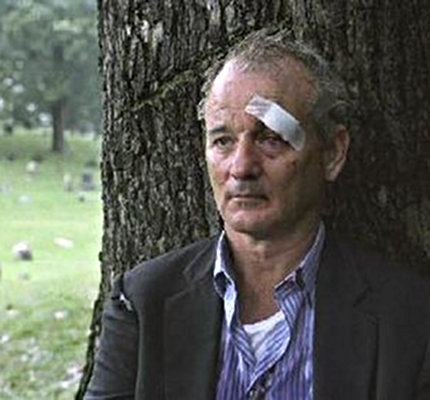
Broken Flowers (2005)
Critical Response: Nominated for the Palme d'Or, and winner of the Grand Prix. Cannes and director Jim Jarmusch have made kissy noises at each other on numerous occasions - the fact Broken Flowers was ace helped. Plus it's got Bill Murray in it, thus it wins.
Post-Cannes Reception: It already ranks as one of the most widely-seen and widely-liked movies in Jarmusch's achingly hip catalogue. We know one bloke didn't enjoy it, though: screenwriter Reed Martin, who tried (and failed) to sue the director for nicking his ideas.

Dancer In The Dark (2000)
Critical Response: Another Palme d'Or winner, and bagged Björk a Best Actress win to boot. Must've been popular pretty much across the critical board then, right...?
Post-Cannes Reception: Um, no. Review quotes ranged from "bold, reckless...courageous and affecting" to "meretricious fakery" and even the ludicrously histrionic "perhaps one of the worst things in the history of the world".
People still scrap bitterly over whether it's uninhibited genius or unutterable guff, while Björk just tries to avoid talking about how many times Lars Von Trier (second appearance so far in this list, stat fans) made her cry.
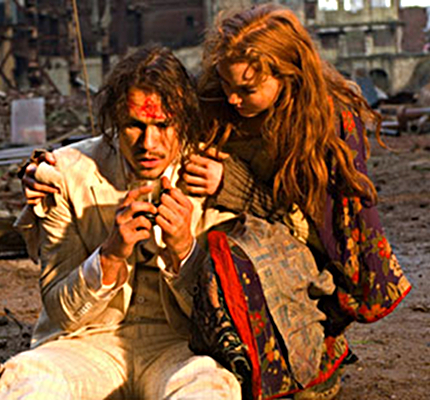
The Imaginarium Of Doctor Parnassus (2009)
Critical Response: Another that didn't quite knock the judges for six - but it took a colossal effort to make it to Cannes at all, given the death of star Heath Ledger mid-way through filming.
Post-Cannes Reception: Mixed as ever with Terry Gilliam's work, although fans thrilled to see him plunge back into the dark, crumbling fantasy he's loved for.
He's evidently still the most cursed helmer ever, though: Dr Parnassus was beaten to a British Independent Film Award for Best Achievement In Production. If you can't bag that after coping with your leading man dying, you're...well, Gilliam.
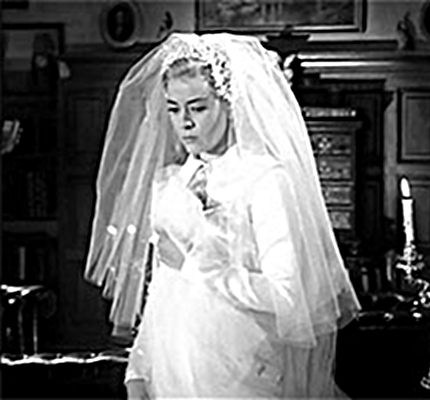
Viridiana (1962)
Critical Response: Luis Buñuel's lyrical riff on faith, morality and human desires was eaten up with a big critical spoon by the Cannes lot, who awarded it a shared Palme d'Or. But once again, we can think of at least one bloke who didn't like it...
Post-Cannes Reception: ...this time, though, it was the Pope. Oops. When John XXIII got wind of the film's contents, his fury resulted in it being banned in Buñuel's native Spain for 15 years.
Not until post-Franco 1977, when the director was already nearly 80 years old, did his countrymen get to watch it on home turf.
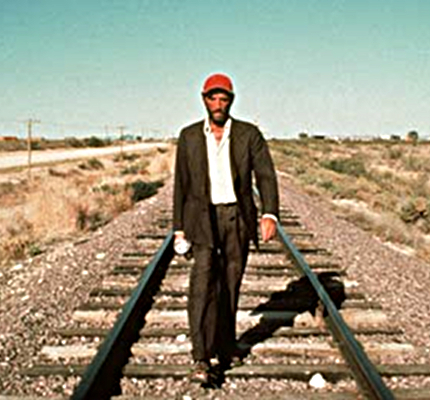
Paris, Texas (1984)
Critical Response: Pretty feverish. Landed not only the overall prize, but also an extra FIPRESCI gong from the international critics' community - like winning Players' Player Of The Year and Goal Of The Season in the same night.
Post-Cannes Reception: Wim Wenders' grizzled anti-Western never really set the world alight in the way its heaping of awards promised, but this bruised tale of a confused, drifting family man quickly became a semi-indie classic amongst those with a taste for such delicacies.
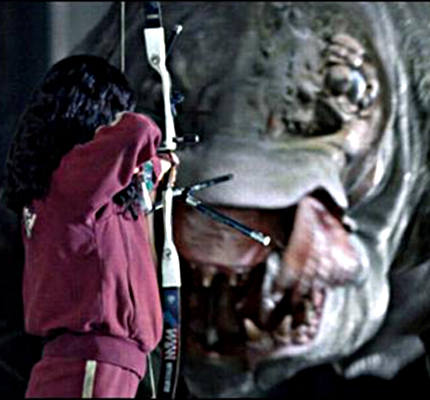
The Host (2006)
Critical Response: Bong Joon-ho's budget-conscious monster mash was hyped to hell and back before anyone actually saw it in Cannes - which is why it's on this list - but it certainly put smiles on faces when they eventually did.
Post-Cannes Reception: Overnight cult classics are rare things, but this politically-charged South Korean mutant kidnap caper achieved immediate must-see status amongst horror fans worldwide.
It still feels amazingly fresh, too - a real shot in the genre's arm that arrived with impeccable timing.

Fish Tank (2009)
Critical Response: A home-grown (for us UK sorts) triumph, Andrea Arnold's gritty council estate drama bagged a Jury Prize - effectively bronze, which ain't too shabby at all.
Moreover, this victory hailed the discovery of top-billed newcomer Katie Jarvis, now seen as one of our brightest young leads for the future.
Post-Cannes Reception: It hasn't really had that long to worm its way into the canon of great British kitchen sink fare, but in time it will. All eyes are firmly fixed on Jarvis for the future, and she doesn't look as though she's about to drop the ball any time soon.
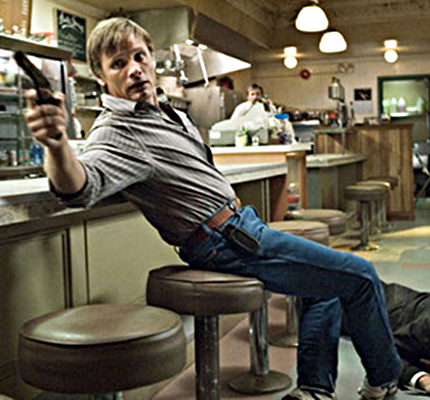
A History Of Violence (2005)
Critical Response: Eyebrows were raised approvingly all along the Croisette for David Cronenberg's crunchy thriller about an ostensibly pin-straight father being dragged back into a shady past.
Palme d'Or to the bloke who made that sex-and-car-crashes flick, then - more on which later.
Post-Cannes Reception: Critical reaction outside of Cannes was pretty much more of the same. The words 'mature', 'deceptive' and, er, 'violent' were favourites, with Cronenberg fans almost unanimously approving of his unusually sober, photorealistic approach. One of the year's best, hands down.
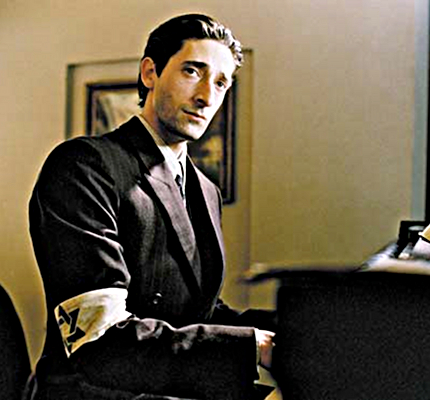
The Pianist (2002)
Critical Response: Given the subject matter - Polish Jewish pianist Wladyslaw Szpilman's fight for survival and sanity in the Warsaw ghetto of WWII - it'd be hard to throw critical muck at Roman Polanski's adaptation.
Luckily, it was beautifully done, and deservedly nicked top prize after opening in competition at Cannes.
Post-Cannes Reception: A small minority cautiously complained of a certain languor to the characters in this bleakest of scenarios. Most, though, declared it a complete success, thanks to a career-making turn from Adrien Brody - judging by his track record since, they were bang on.
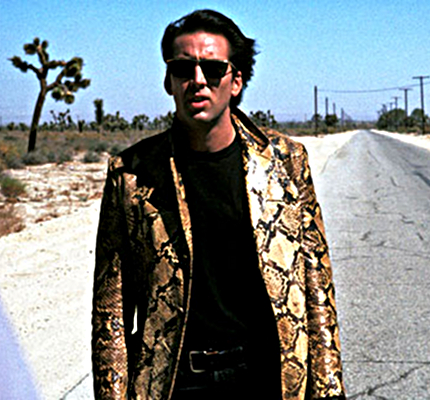
Wild At Heart (1990)
Critical Response: A genuinely controversial winner of the Palme d'Or - both die-hard David Lynch aficionados and mere passing aquaintences found themselves fiercely and vocally divided about the victory.
Post-Cannes Reception: The critical row over Wild At Heart has seen several prominent critics dismissing the movie as "cartoony", "a parody", "forced" and even "dishonest".
Many remain incredulous about that Cannes win to this day, too - and even a decent percentage of hardcore Lynch fans still don't have that much time for this one. Pretty mystifying to those of us who dig it.
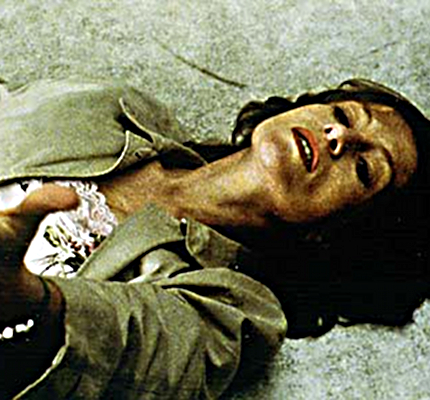
The Piano Teacher (2001)
Critical Response: More keyboard-based festival triumph...although this time about a sexually repressed, masochistically inclined music teacher's obsession with a teenage pupil.
Cannes is no prude though: director Michael Haneke (another festival favourite) earned a Grand Prix, and best actor wins followed for both Isabelle Huppert and Benoit Magimel.
Post-Cannes Reception: Critics soon got over the extent of the depravity lurking behind Huppert's prim piano teacher, and she remains lauded for the role to this day. That subtle blend of desperation and icy intelligence is, Haneke agrees, by now her own.
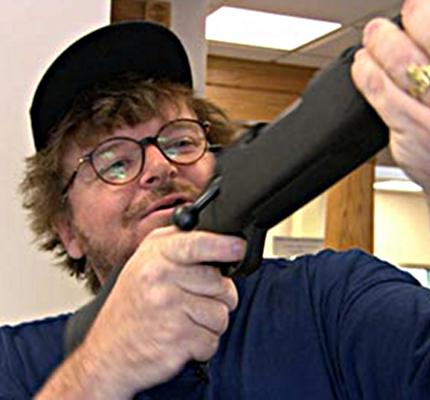
Bowling For Columbine (2002)
Critical Response: Off the hook - a 13-minute ovation and a special 55th anniversary prize. So began Cannes' five-year love affair with Michael Moore...
Post-Cannes Reception: One thing you can rely on Moore to do is divide his audience along the political schisms he actively seeks to pry open. No prizes for guessing which sides of the fence Republicans/Democrats tended to fall on this one.
Or Marilyn Manson fans, for that matter - his beautifully weighted talking head cameo went a very long way towards changing perceptions of him as a one-dimensional shock-rocker the world over.
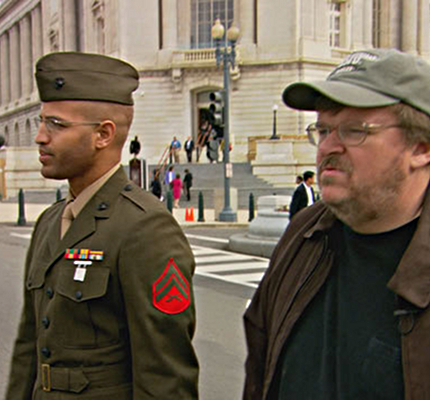
Fahrenheit 9/11 (2004)
Critical Response: Moore returns! 13 minute ovations a bit flimsy for ya? Try 20 minutes this time around - the longest in Cannes history, no less - and a Palme d'Or to top it off. Yup, this one went down smooth.
Post-Cannes Reception: Pretty much everyone who'd liked Bowling loved this. Even those who hated Bowling were less vocal here; the numbers in the 'for' camp seemed to have swelled, due to ever-increasing worldwide dissatisfaction with the Bush governement over Iraq.
Still widely regarded as probably Moore's finest hour to date.
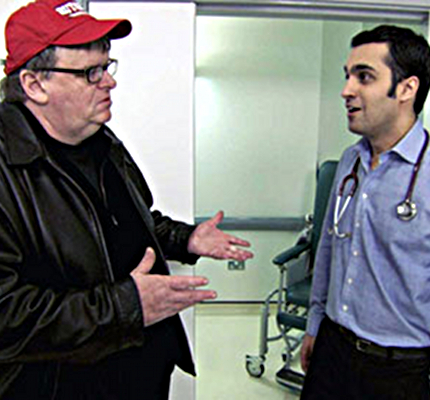
Sicko (2007)
Critical Response: Where else would Moore's stone-turning exposé of US healthcare premiere? Just a 15-minute ovation this time, mind - although you'd be hard-pushed to call that a failure.
Post-Cannes Reception: The New Yorker, of all organs, found it both "feeble" and "inane". They were pretty much out on a limb though; despite occasional mutterings of "exaggeration" and even "cinematic sleight of hand", it topped several heavyweights' best-of-year lists.
It's more relevant than ever now, too - an impressive feat for such a pointedly topical piece.
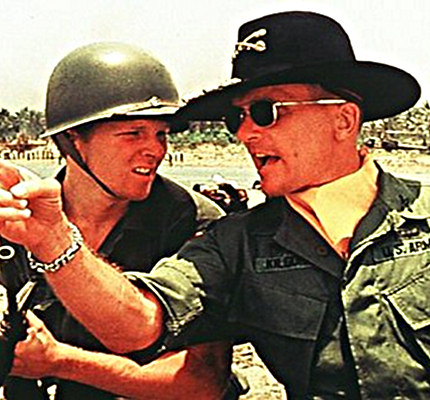
Apocalypse Now (1979)
Critical Response: Just in case you'd started to worry that Michael Moore secretly owned Cannes, lets remind ourselves of the heavyweight blockbuster pulling power of the Croisette.
Coppola's magnum opus shared Palme d'Or honours, despite screening unfinished as a three-hour 'work in progress' (and earning a few baffling boos). Some over-eager journos ignored the embargo, with one TV critic labelling Apocalypse "a disappointing failure" the next morning. A recipe for a P45 if ever we heard one.
Roughly as popular as food amongst cinephiles today, and rightly so.
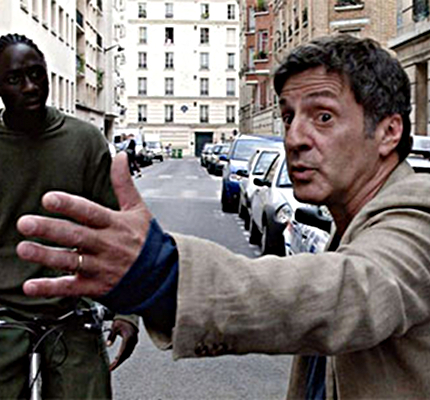
Hidden (2005)
Critical Response: Another splash for Croisette golden boy Michael Haneke. Best Director, a coveted FIPRESCI prize, and the Ecumenical Jury prize - we're assuming he had to pay excess baggage charges on his way home with all that silverware.
Post-Cannes Reception: Many felt the film's upwardly mobile stalking victim protagonists filtered wonderfully through Haneke's an almost paradoxical blend of high tension and chilly emotional blankness.
A few weren't swayed, though, some claiming it relies on a certain degree of middle class smugness to achieve full effect. Surely that's one of the key points Haneke's making, though...?
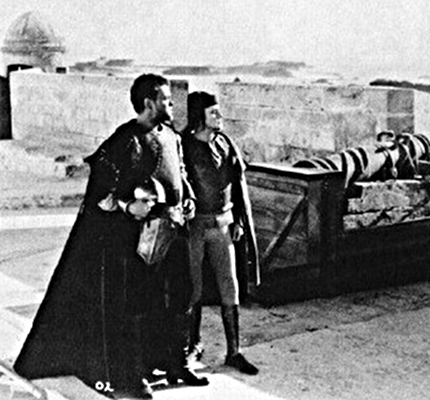
The Tragedy Of Othello: The Moor Of Venice (1952)
Critical Response: Othello makes the list because its premiere at the 5th Cannes underlined the fest's dedication to quality. Writer/director Orson Welles had burned numerous Hollywood bridges by 1952, and this mini-masterpiece was pretty much overlooked there.
Not so at Cannes: Welles took home a Palme d'Or , and his Othello even made it back to the Croisette in a restored, out-of-competition capacity in 1992.
Post-Cannes Reception: The restored, re-scored version enjoyed a minor buzz in 1992, but it still ended up debuting in the US on - cinephiles, please look away now - cable . Blasphemy!
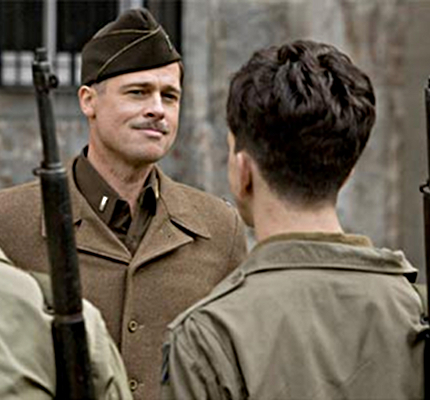
Inglourious Basterds (2009)
Critical Response: Tarantino's Nazi-scalping WWII romp was barely visible for buzz before its premiere, proving again that Hollywood big-hitters see Cannes as a top platform for major releases.
Although Basterds ruffled a few negative festival feathers, Christoph Waltz nabbed the first of roughly a billion global awards for his mesmerising baddie, Hans Landa.
Post-Cannes Reception: Many viewers clearly loved to hate this film. How much that reflected a desire to drag Tarantino off his pedestal is a moot point - a lot of people saw it, and most came out with a strong opinion. Job done, you could argue...
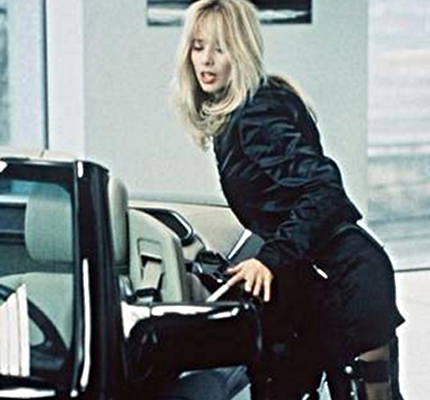
Crash (1996)
Critical Response: A History Of Violence wasn't Cronenberg's first flirtation with Cannes triumph - a decade earlier, the unthinkable had almost happened: his eye-popping screw-and-smash novel adaptation nearly scooped the top award. Insania!
Post-Cannes Reception: Instead it bagged the Special Jury Prize, which still ain't half bad for a profoundly disturbing psychodrama that sent morally fretful critics into paroxysms of hand-wringing, ban-happy panic.
In the UK in particular, local authorities regularly flew into a censorial frenzy whenever it threatened to come within a hundred miles of their morally impeccable parish. Daft, but hey.
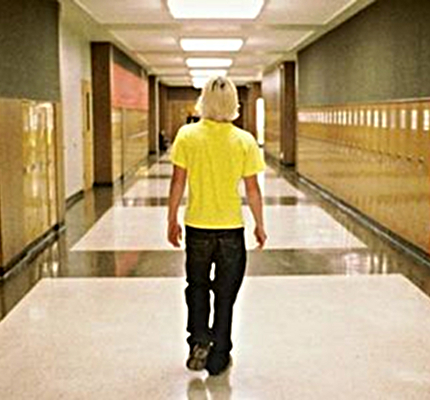
Elephant (2003)
Critical Response: More school shooting-related controversy. This time, it was Gus Van Sant's turn to make heads, er, turn...and, despite the inevitable fretting of a post-Columbine world, he and his peeps crew left with the Palme d'Or.
Post-Cannes Reception: The win didn't translate to a huge global audience for Van Sant's understated, quirky, disturbing and yet oddly redemptive little gem. Critically, it did just fine, but still hardly anybody actually went out and saw it. Odd.
If you number amongst those cruelly denied, we heartily recommend you give it a crack.
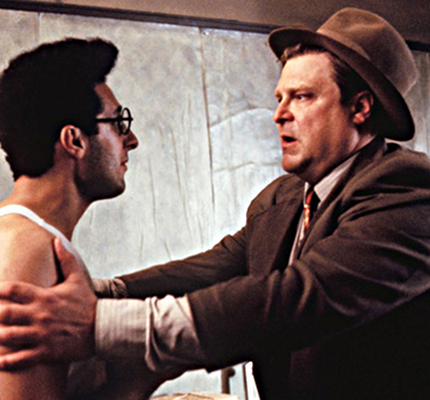
Barton Fink (1991)
Critical Response: Pretty darn rapturous - the Coen brothers' off-kilter mash of fact and twisted fiction swept Best Director, Best Actor (John Turturro) and the Palme d'Or. A good night's work.
Post-Cannes Reception: And yet it still only raked in just over $6million box office. Ok, so it's a kooky melodrama noir about a struggling scriptwriter rooming next to a psycho, and it leaves us hanging over a bleakly unsatisfactory precipice...
...but seriously, look at all that silverware! How strong a recommendation do people need before a mildly confusing title is no longer an issue?
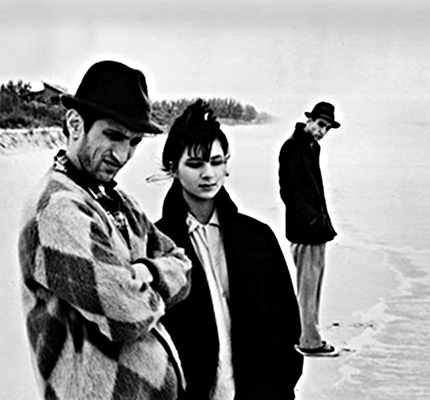
Stranger Than Paradise (1984)
Critical Response: Jarmusch - recurring Cannes name #1594 - scored with this minimal, intensely wry comic tale of two New York hipsters and a visiting cousin. As it was his first festival, he earned a Caméra d'Or prize for still-damp directors.
Post-Cannes Reception: It only really topped must-see lists within the very hipster cliques it gently mocks, but the film's legacy is beyond dispute.
More than anything, Jarmusch's celebration of the battered, bare, no funding aesthetic would inform generations of indie filmmakers - indeed, it's still the default visual setting, essentially, for most grungy DIY projects today.
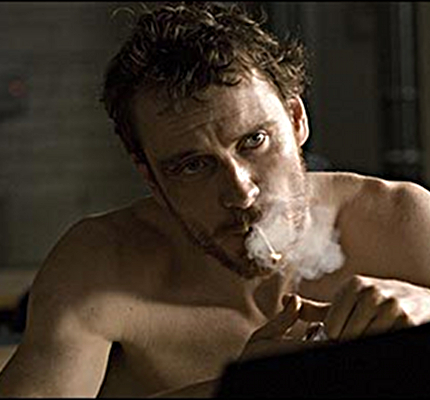
Hunger (2008)
Critical Response: Steve McQueen's subjective take on the 1981 Irish hunger strikes came after Michael Moore had shown, much to Cannes' credit, that politics do register amidst the beach tans and glitzy restaurants.
Walkouts and ovations were no surprise, then - the Caméra d'Or prize, however, was.
Post-Cannes Reception: Besides the inflammatory subject matter, McQueen's so-called fine art background has proved oddly contentious.
The film scraped a good few annual top five lists and a BAFTA, but it still never entirely shook off accusations of being self-indulgent; even vain.

Atanarjuat (2001)
Critical Response: Another Golden Camera recipient, and another debut in more ways than one.
Not only was this wildly praised, historical legend-based epic a Cannes premiere, it was also the first feature ever to be written, directed and acted entirely in the native Inuit tongue.
Post-Cannes Reception: Crucially, it was rabidly well received by the Inuit community, giving an economical and cultural boost to a nation director Zacharias Kunuk saw as having had "four thousand years of oral history silenced by 50 years of priests, schools, and cable TV."
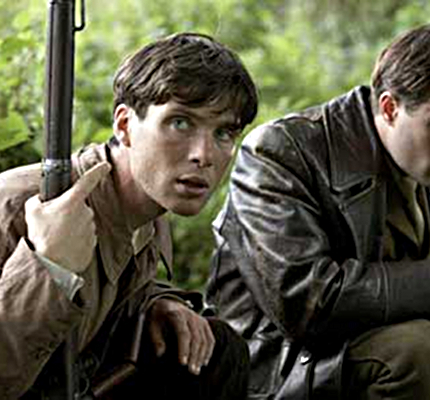
The Wind That Shakes The Barley (2006)
Critical Response: Homegrown glory struck again in 2006, Ken Loach nicking top prize with an emotive period study of the Irish Troubles.
The word 'brave' became popular overnight - understandable, given the way The Wind... appears to favour/smear the Irish and British respectively.
Post-Cannes Reception: If 'brave' was the buzz word for fans of Loach (and Cillian Murphy's young Irish doctor consumed by rage), then 'corrupt' was a favourite amongst high-profile detractors. Several even went so far as to label it 'poisonous'.
No fences to sit on in Cannes...
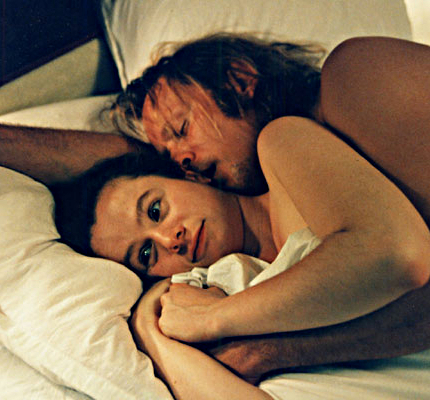
Breaking The Waves (1996)
Critical Response: Lars Von Trier (again) faced misogyny claims (again). To be fair, a film about a child-like wife sleeping around at her disabled husband's request is an easy target...but it still took the Grand Prix, Cannes' panels showing admirable tolerance for tricky material.
Post-Cannes Reception: Heavy Dogme95 influence didn't send droves to the box office, but it's up there with The Idiots and Antichrist as one of the most argued-about films by one of the most argued-about directors in the business today.
Cannes may not always deilght, but it sure as hell sparks debate. Roll on this year, then...we can hardly freakin' wait.
Weekly digests, tales from the communities you love, and more
You are now subscribed
Your newsletter sign-up was successful
Want to add more newsletters?

Every Friday
GamesRadar+
Your weekly update on everything you could ever want to know about the games you already love, games we know you're going to love in the near future, and tales from the communities that surround them.

Every Thursday
GTA 6 O'clock
Our special GTA 6 newsletter, with breaking news, insider info, and rumor analysis from the award-winning GTA 6 O'clock experts.

Every Friday
Knowledge
From the creators of Edge: A weekly videogame industry newsletter with analysis from expert writers, guidance from professionals, and insight into what's on the horizon.

Every Thursday
The Setup
Hardware nerds unite, sign up to our free tech newsletter for a weekly digest of the hottest new tech, the latest gadgets on the test bench, and much more.

Every Wednesday
Switch 2 Spotlight
Sign up to our new Switch 2 newsletter, where we bring you the latest talking points on Nintendo's new console each week, bring you up to date on the news, and recommend what games to play.

Every Saturday
The Watchlist
Subscribe for a weekly digest of the movie and TV news that matters, direct to your inbox. From first-look trailers, interviews, reviews and explainers, we've got you covered.

Once a month
SFX
Get sneak previews, exclusive competitions and details of special events each month!


